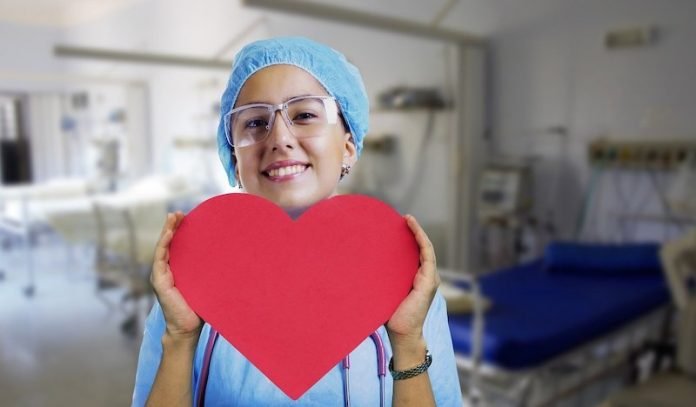
Because people with heart disease are likely to experience complications from COVID-19, Rush cardiologists are encouraging their patients to get the COVID-19 vaccine when they are eligible.
“I strongly recommend that everyone receive the COVID-19 vaccine,” says Joseph Mularczyk, MD, a cardiologist at Rush University Medical Center.
“The vaccination is especially important for people who have prior heart issues because they are at significant risk of having a bad outcome from a COVID-19 infection.”
An increased risk
Even people who do not have heart disease and have had COVID-19 may experience long-term effects on heart health, including inflammation and damage to the heart muscle, Mularczyk says.
But for those who already have heart disease, COVID-19 poses a higher risk of abnormal heart rhythms, heart failure and possible death.
He says problems as basic as high blood pressure and vascular disease increase risk significantly.
“Generally speaking, patients who have cardiac conditions are at higher risk of complications from COVID-19,” says Gaurav Shah, DO, an interventional cardiologist at Rush Copley Medical Center.
“COVID-19 predisposes patients to cardiac complications—such as heart attacks, irregular rhythms and weakened heart muscle—days and even weeks after a COVID-19 diagnosis.”
COVID-19 can affect the heart several ways. While the virus initially affects the respiratory system, Mularczyk explains the resulting decreased oxygen to the heart can lead to decreased heart function and damage.
In other instances, the heart muscle can be directly infected, or an inflammatory response can damage the heart muscle, disrupt the heartbeat, increase risk of clots forming in blood vessels and cause narrowing of blood vessels.
Preventing health complications
Edward Lipman, MD, an electrophysiologist at Rush Copley Medical Center, recommends the vaccine to his patients to help reduce their increased risk.
Many of his patients have survived heart failure, had bypass surgery or other surgeries to replace or fix heart valves or put in stents, and gone through months of rehab.
While they have already endured many health setbacks, he says the COVID-19 vaccine can help them prevent further heart and health complications.
Mularczyk notes that studies definitively show that the vaccine lowers a person’s risk of a bad outcome from COVID-19—especially for those who have heart conditions.
In addition to recommending the vaccine, the cardiologists encourage their patients and the public to continue to practice safety measures, even after vaccination.
“The most important thing you can do for your health is to wear a mask before and after getting a vaccine,” Lipman says.
While wearing a mask—and wearing it properly—is one of the best ways to limit the spread of COVID-19, the cardiologists also recommend washing your hands frequently, practicing social distancing and avoiding gatherings with others outside your home.



